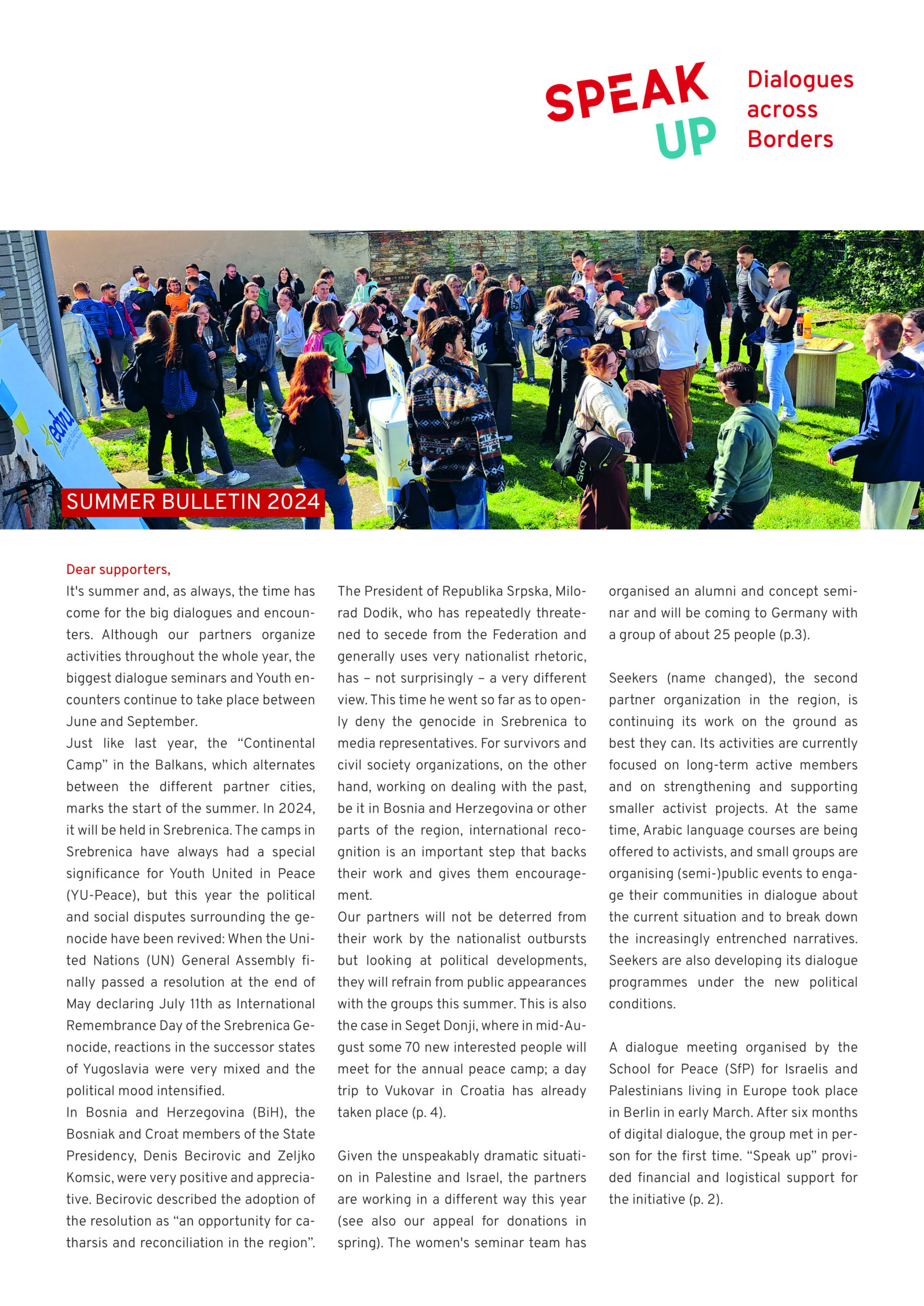
It’s summer and, as always, the time has come for the big dialogues and encounters. Although our partners organize activities throughout the whole year, the biggest dialogue seminars and Youth encounters continue to take place between June and September.
Just like last year, the “Continental Camp” in the Balkans, which alternates between the different partner cities, marks the start of the summer. In 2024, it will be held in Srebrenica. The camps in Srebrenica have always had a special significance for Youth United in Peace (YU-Peace), but this year the political and social disputes surrounding the genocide have been revived: When the United Nations (UN) General Assembly finally passed a resolution at the end of May declaring July 11th as International Remembrance Day of the Srebrenica Genocide, reactions in the successor states of Yugoslavia were very mixed and the political mood intensified.
In Bosnia and Herzegovina (BiH), the Bosniak and Croat members of the State Presidency, Denis Becirovic and Zeljko Komsic, were very positive and appreciative. Becirovic described the adoption of the resolution as “an opportunity for catharsis and reconciliation in the region”. The President of Republika Srpska, Milorad Dodik, who has repeatedly threatened to secede from the Federation and generally uses very nationalist rhetoric, has – not surprisingly – a very different view. This time he went so far as to openly deny the genocide in Srebrenica to media representatives. For survivors and civil society organizations, on the other hand, working on dealing with the past, be it in Bosnia and Herzegovina or other parts of the region, international recognition is an important step that backs their work and gives them encouragement.
Our partners will not be deterred from their work by the nationalist outbursts but looking at political developments, they will refrain from public appearances with the groups this summer. This is also the case in Seget Donji, where in mid-August some 70 new interested people will meet for the annual peace camp; a day trip to Vukovar in Croatia has already taken place (p. 4).
Given the unspeakably dramatic situation in Palestine and Israel, the partners are working in a different way this year (see also our appeal for donations in spring). The women’s seminar team has organised an alumni and concept seminar and will be coming to Germany with a group of about 25 people (p.3).
Seekers (name changed), the second partner organization in the region, is continuing its work on the ground as best they can. Its activities are currently focused on long-term active members and on strengthening and supporting smaller activist projects. At the same time, Arabic language courses are being offered to activists, and small groups are organising (semi-)public events to engage their communities in dialogue about the current situation and to break down the increasingly entrenched narratives. Seekers are also developing its dialogue programmes under the new political conditions.
A dialogue meeting organised by the School for Peace (SfP) for Israelis and Palestinians living in Europe took place in Berlin in early March. After six months of digital dialogue, the group met in person for the first time. “Speak up” provided financial and logistical support for the initiative (p. 2).
